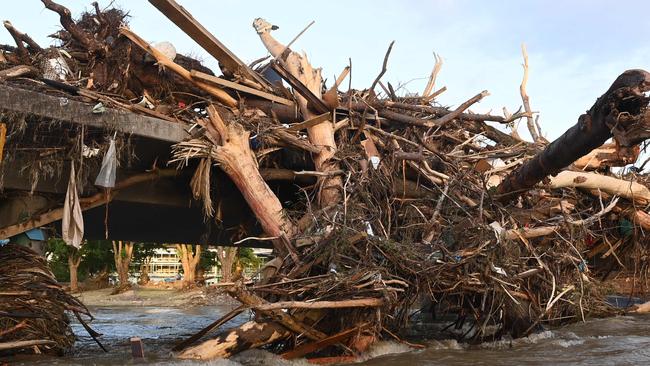Climate crisis runs ahead of scientists
Bushfires tearing through Siberia’s boreal forest, floods killing scores of people in Germany, high temperatures roasting North America: these are the manifestations of a growing climate crisis.

Bushfires tearing through Siberia’s boreal forest, floods killing scores of people in Germany, high temperatures roasting North America: these are the manifestations of a growing climate crisis that is accelerating faster than scientists and campaigners expected.
David King, the chairman of the Climate Crisis Advisory Group, an independent body of 15 world-leading climate scientists, said there was already “no remaining budget for greenhouse gases in our atmosphere”.
“The impacts on local communities are devastating, leading to hundreds of deaths. These are casualties of the climate crisis. They must serve as a catalyst for immediate action to reduce greenhouse gas emissions. They must be reduced,” Sir David said.
“We urgently need to find innovative ways to refreeze the Arctic in particular to buy time while we bring greenhouse gases down to a manageable level for parts of the planet that are beyond the tipping point. Failing to take these actions will mean that we continue to sleepwalk into a climate catastrophe.”
Recent fires have swept through more than 1.4 million hectares in Russia’s eastern region of Yakutia, officials say. Military aircraft are water bombing dozens of new blazes. In western Germany, villagers are still counting the cost after more than 160 people were killed in sudden floods that crushed homes. Belgium, Luxembourg and The Netherlands were also hit.
While experts say climate change is never the only cause of a flood or a heatwave, it affects the likelihood and frequency of them occurring, and their intensity. Scientists are predicting more cases of extreme weather as the average global temperature rises.
“Deadly heatwaves, floods, storms, wildfires, droughts, crop failures,” Swedish activist Greta Thunberg said last week. “This is not ‘the new normal’. We’re at the very beginning of a climate and ecological emergency, and extreme weather events will only become more and more frequent.”
The urgency of the situation has become clearer with the advent of “rapid attribution studies”, in which the role of climate change can be assessed within days of events such as bushfires and heatwaves. Observing such phenomena in real time, researchers compare their data with a simulated world where there are no carbon emissions and no resulting greenhouse effect.
In one such study, scientists including Friederike Otto of Oxford University, found that last month’s fatal heatwave in the Pacific northwest of the US and Canada was “virtually impossible without human-caused climate change”.
Such events will become “a lot less rare” as heating continued, the report concluded. It said: “Our results provide a strong warning: our rapidly warming climate is bringing us into uncharted territory that has significant consequences for health, wellbeing and livelihoods.”
Experts see a global pattern in the increasing scale and severity of “extraordinary heat events” and other examples of freak weather. “We are getting used to record high temperatures being recorded somewhere around the world every year now,” Professor Peter Stott, of the UK Met Office, told the BBC.
The Times



To join the conversation, please log in. Don't have an account? Register
Join the conversation, you are commenting as Logout